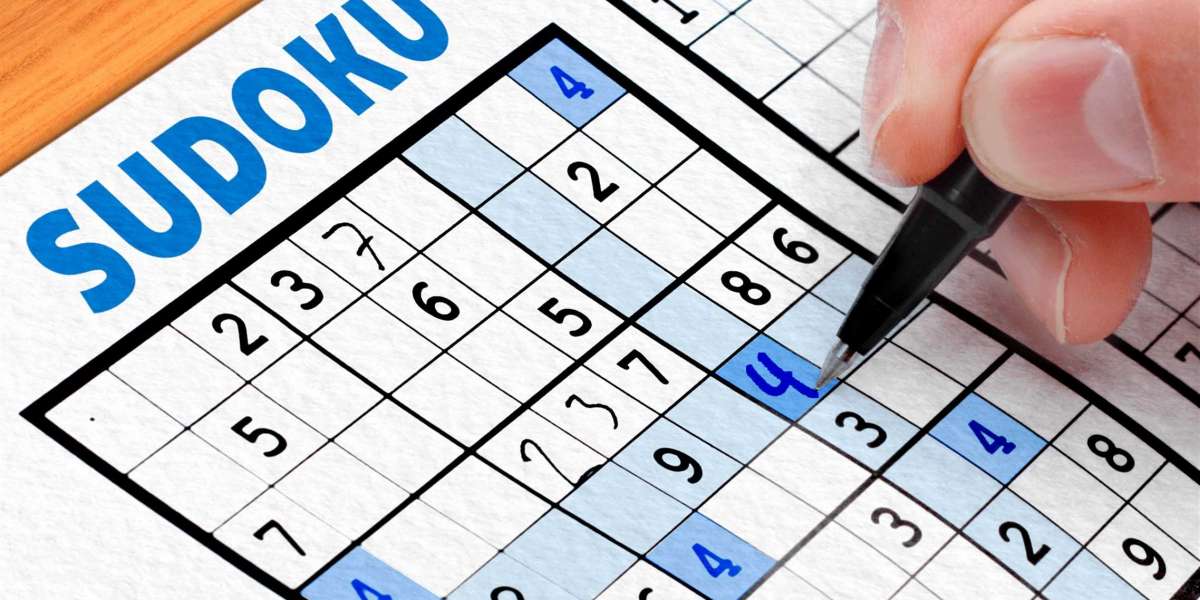At first, Sudoku felt like a logic exam disguised as a hobby. But the more I played, the more I realized — it’s not about math at all. It’s about rhythm, patience, and a weird kind of satisfaction that comes from making sense of chaos.
The First Time I “Got It”
My first Sudoku experience was… humbling. I filled in half the board with complete confidence, only to realize one tiny mistake in the top-right grid ruined everything. The more I tried to fix it, the worse it got. Eventually, I gave up and started over — which, if you’ve ever played Sudoku, you know is the gamer’s version of saying, “Okay, life, I surrender.”
But then something clicked on my second try. I slowed down, started scanning the board more logically, and piece by piece, the puzzle came together. That final satisfying moment when every box was filled — that was it. I was hooked.
Why Sudoku Is Weirdly Relaxing
You wouldn’t think staring at a bunch of boxes could calm you down, but Sudoku has this meditative quality. It’s quiet. Predictable. No ads flashing in your face, no timers pressuring you — just you and your own brain trying to restore order to a messy world.
When I’m stressed from work or overwhelmed with notifications, Sudoku gives me a break that’s both peaceful and productive. My mind stays busy, but my thoughts stay quiet. It’s like a mental spa treatment — without the bathrobe.
The Hidden Joy of Struggling
There’s a special kind of humor in realizing how stubborn Sudoku can be. I’ve spent ten minutes trying to decide where one single “7” should go. TEN. MINUTES.
And don’t even get me started on “Expert” mode puzzles — those things are pure chaos disguised as grids. I once tried one before bed, thinking it’d be a nice way to unwind. Two hours later, I was still awake, mumbling to myself like a detective chasing clues:
“If that 6 goes there, then this 2… no, wait, that breaks the column…”
Eventually, I solved it — and then immediately fell asleep with the most peaceful smile.
My Sudoku Survival Tips
Over time, I’ve picked up a few strategies that make Sudoku less about frustration and more about fun:
Don’t guess. Seriously. Guessing in Sudoku is like gambling — it always comes back to haunt you.
Mark small notes. Those tiny numbers in the corners save lives (and sanity).
Take breaks. When you’re stuck, walk away. The answer will magically appear when you return.
Celebrate small wins. Filling one stubborn box feels as good as winning a mini-game.
These little tricks keep me sane — and make each puzzle feel like a satisfying brain workout instead of a test.
Comparing Sudoku to Modern Games
I play my fair share of video games — from chaotic racing in Crazy Cattle 3D to endless tapping in Flappy Bird back in the day — but Sudoku feels different. There’s no luck, no leaderboard, no rage-quitting because someone else outplayed you.
It’s just pure logic. Every decision matters. Every mistake is your own — and weirdly, that makes it fair.
If Flappy Bird teaches you patience through pain, Sudoku teaches it through peace.
Sudoku in Real Life Lessons
What surprised me most is how Sudoku slowly started changing how I think outside the game.
It made me more patient. Instead of rushing through problems, I now pause and analyze.
It taught me attention to detail — one small error can throw off everything.
And it reminded me that calm thinking beats chaos almost every time.
Honestly, those are lessons I didn’t expect to learn from a simple grid of numbers.
When Sudoku Becomes a Ritual
Now, Sudoku is my favorite way to start the day. Before checking emails or scrolling through social media, I open a random puzzle. It’s my brain’s version of stretching before a workout.
There’s something deeply satisfying about watching order emerge from confusion — especially when the rest of the world feels unpredictable.
Some mornings, it’s just a small victory: finishing a “Hard” puzzle without using hints. Other mornings, I fail miserably. But even then, I feel oddly proud that I tried.
The Unexpected Social Side
I never thought Sudoku could be social until I caught my friend doing the same thing at a café. We compared strategies like athletes —
“You start with rows or boxes?”
“I always go for 1s first, they’re like anchors.”
Before we knew it, we were racing to finish puzzles side by side. It wasn’t competitive in the usual sense — it was more like sharing a quiet language only puzzle-lovers understand.
The Beauty of Finishing
There’s this one perfect moment every Sudoku player knows — the second the final number clicks into place, and the grid is complete. No fireworks, no applause — just a quiet, satisfying done.
That feeling stays with you. It’s like solving a mini mystery, and the reward isn’t points or prizes — it’s clarity.
And sometimes, that’s all we really want: a few minutes where the world finally makes sense.
Final Thoughts
Sudoku started as a casual distraction but ended up becoming my daily dose of calm and clarity. It’s strange how something so simple can be so grounding.














